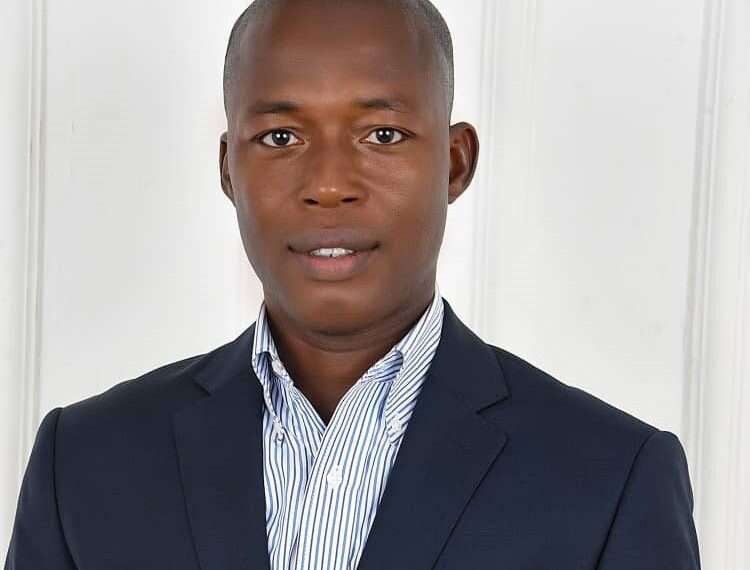Dr. Abdul Hakim Ahmed, a Political Science Lecturer at the University of Education, Winneba, has dismissed concerns over the recent cut in USAID funding to Ghana, asserting that the $156 million reduction should not be a matter of national distress.
Speaking in an interview with the Vaultz News, he emphasized that Ghana’s economic framework should be robust enough to withstand such funding shocks if corruption and financial mismanagement were effectively addressed.
“This is very interesting. But I’ve heard your introductory remarks. USAID was giving $156 million in a year, and we are not getting it, and it has become an issue.
“Well, well, in terms of the macroeconomic framework we use, when there are cuts in revenue or grants, then there are two things the government does: one, it cuts spending to fit into the budgetary framework, or it increases revenue”.
Dr Abdul Hakim Ahmed, Political Science Lecturer at the University of Education Winneba
The recent withdrawal of $156 million (approximately GHS 2 billion) in USAID funding has raised significant concerns about its impact on Ghana’s key sectors: governance, healthcare, economic growth, and education.
Notably, healthcare stands to suffer the most, with a critical $78 million cut affecting PEPFAR initiatives such as HIV testing and antiretroviral provision.
Ghana is already facing economic challenges, including fiscal constraints and an IMF-backed recovery program, and the funding cut adds another layer of complexity.
President John Dramani Mahama has directed Finance Minister Dr. Cassiel Ato Forson to find alternative solutions, but analysts warn that without strategic interventions, the implications could be severe.
Dr Ahmed acknowledged that in practical fiscal terms, the government would either reduce expenditure or find alternative revenue streams to cover the funding gap created by the loss of USAID support.
However, he argued that, on a broader economic and theoretical level, $156 million should not be a sum that generates alarm in a country like Ghana, which reportedly loses billions annually due to corruption.
“On a more practical and even philosophical or theoretical level, $156 million shouldn’t be an amount that should even raise an iota of an eyebrow in this economy or create such concern. It should not create any concern. If we are losing something in the region of $3 billion in a year to corruption, what is $156 million to us?”.
Dr Abdul Hakim Ahmed, Political Science Lecturer at the University of Education Winneba
Ghana’s Public Sector Corruption and Inefficiencies
He emphasized that the fundamental issue at hand is not the loss of the USAID funding but the broader inefficiencies in Ghana’s economic system.
According to him, the country’s heavy reliance on foreign aid is a significant indicator of the successive government’s failure to develop an independent and resilient economic structure.
“But that’s why I mentioned to you that, practically, when it happens like this, the government has to cut expenditure or raise revenue. This is what happens, and this is what the president was alluding to. But from where I stand, I don’t see the loss of $156 million from USAID to be an issue of concern at all”.
Dr Abdul Hakim Ahmed, Political Science Lecturer at the University of Education Winneba

Dr. Ahmed further aligned his position with that of President John Dramani Mahama, who, during the Munich Security Summit in Germany, called on African countries—particularly Ghana—to develop economies capable of withstanding global financial shocks without reliance on foreign aid.
“As President Mahama reiterated in his recent remarks during the Munich Security Summit in Germany, the USAID funding cut is a call for African countries, particularly Ghana, to develop an economy that is resilient and robust enough to withstand global shocks”.
Dr Abdul Hakim Ahmed, Political Science Lecturer at the University of Education Winneba
Referencing the Auditor General’s reports on financial leakages in Ministries, Departments, and Agencies (MDAs), Dr Ahmed stressed that Ghana’s economic survival should not be predicated on external grants.
Instead, he called on the government to clamp down on corruption and wastage in the public sector to secure the nation’s financial future.
“With the amount of money that is mostly lost to corruption, per the Auditor General’s report on MDAs, the government must do well to reduce such huge losses drastically, if not eliminate them. The government must also do well to cut down on waste in most of the state agencies, especially the state parastatals”.
Dr Abdul Hakim Ahmed, Political Science Lecturer at the University of Education Winneba
The USAID funding cut comes at a time when Ghana’s economy is grappling with revenue shortfalls, rising inflation, and a high debt-to-GDP ratio.
While some analysts and policymakers consider the withdrawal of foreign aid a major setback, others, like Dr Abdul Hakim Ahmed, see it as an opportunity for Ghana to reevaluate its economic priorities and reduce its overdependence on external financial support.
His remarks add to the growing debate on Ghana’s economic sustainability and the urgent need for structural reforms to curtail corruption, enhance domestic revenue mobilization, and optimize government expenditure.
As President Mahama had initially assured of his government’s commitment to bridging the funding cut gap and building a resilient economy, it is yet to be seen what plans his government would undertake to achieve it.
READ ALSO: Ghana to Prioritizes Gas Processing for Energy Reforms



















